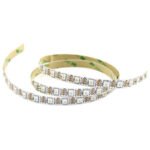



 Sensors & Module
Sensors & Module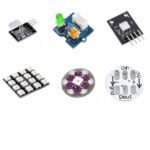 LED Module
LED Module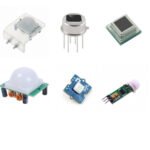 PIR Sensor
PIR Sensor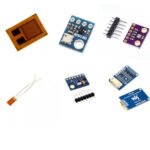 Pressure Sensors
Pressure Sensors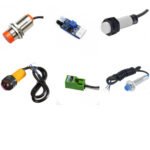 Proximity Sensor
Proximity Sensor Real Time Clock (RTC) Module
Real Time Clock (RTC) Module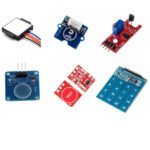 Touch Sensor
Touch Sensor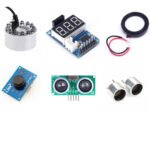 Ultrasonic Sensor
Ultrasonic Sensor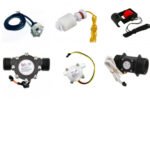 Water Level & Water Flow Sensor
Water Level & Water Flow Sensor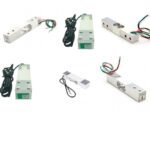 Weighing Scale Sensor
Weighing Scale Sensor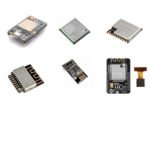 Ai Thinker ESp Wifi Module
Ai Thinker ESp Wifi Module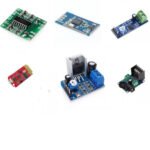 Audio Amplifier Module
Audio Amplifier Module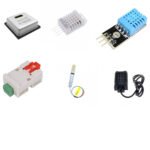 Humidity & Temperature Sensor
Humidity & Temperature Sensor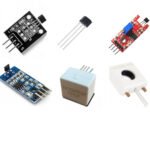 Hall Effect Sensor
Hall Effect Sensor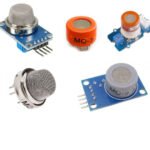 Gas Sensors
Gas Sensors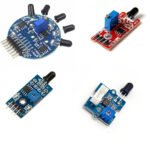 Flame Sensors
Flame Sensors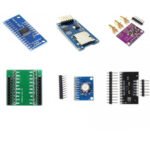 Breakout Board
Breakout Board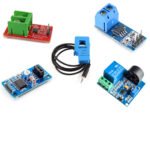 Current & Volatage Sensor
Current & Volatage Sensor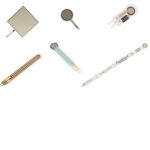 Force Sensor
Force Sensor Boards & Programmer
Boards & Programmer
























The 1M WS2812B 5V Addressable RGB Non-Waterproof LED Strip Light 60LEDs/Mtr is extremely flexible, easy to use and each LED of the strip can be controlled separately by using Arduino Board or basically by using a micro controller.
Hurry and get discounts on all Apple devices up to 20%
Sale_coupon_15
₹720.00 ₹706.00
Inclusive of GST
10 in stock
10 in stock
To pick up today
Free
Our courier will deliver to the specified address
3-4 Days
139
courier will deliver to the specified address
5-7 Days
90
Payment Methods:
The 1M WS2812B 5V Addressable RGB Non-Waterproof LED Strip Light 60LEDs/Mtr is extremely flexible, easy to use and each LED of the strip can be controlled separately by using Arduino Board or basically by using a microcontroller.
Each LED has been equipped with the integrated driver that allows you to control the color and brightness of each LED independently.
These Non-Waterproof WS2812B SMD LED Strip 60 LED/Meter Flexible 1 METER LENGTH 5V, IP30 flexible RGB LED strips are an easy way to add complex lighting effects to a project.
The combined LED/driver IC on these strips is the extremely compact WS2812B (essentially an improved WS2811 LED driver integrated directly into a 5050 RGB LED), which enables higher LED densities.
Each LED strip can be soldered to bring out three connectors: the input connector, the auxiliary power wires, and the output connector. The strip uses 3-pin JST SM connectors.
The input connector may have the white/black wire which will be ground, the green wire will be the signal input, and the red wire will be the power line.
The auxiliary power wires are connected to the input side of the LED strip and may have consisted of white/black and red wires. The white wire will be ground, and the red wire will be the power line. This provides an alternate (and possibly more convenient) connection point for LED strip power.
The output connector will be soldered on the other end of the strip and is designed to mate with the input connector of another LED strip to allow LED strips to be chained. The white/black wire will be ground, the green wire will be the signal output, and the red wire will be the power line.
Note: The ground connector wire colors may change as white to black kindly take a note of that. Depending on the connector bought to solder with the strip.
To control the LED strip from a micro controller, two wires from the input connector should be connected to your micro controller. The LED strips ground (white) should be connected to ground on the micro controller, and the LED strips signal input line (green) should be connected to one of the micro controllers I/O lines. The male pins inside the input connector fit the female terminations. If you are connecting the LED strip to a breadboard or a typical Arduino with female headers, you would want to use male-female wires.
We generally recommend powering the LED strip using the auxiliary power wires. Our 5V wall power adapters work well for powering these LED strips. However, you might need a wire stripper to strip off some more insulation from the power wires.
It is convenient that the power wires are duplicated on the input side because you can connect the auxiliary power wires to your 5V power supply and then the power will be available on the data input connector and can be used to power the micro controller that is controlling the LED strip. This means you can power the micro controller and LED strip from a single supply without having to make branching power connections.
The LED strip is divided into segments, with each segment containing one RGB LED. The strip can be cut apart on the lines between each segment to separate it into usable shorter sections. The data connection is labeled DO, Dout, DI, or Din, the positive power connection is labeled 5V, and the ground connection is labeled GND. Each LED in the picture shown above is at the center of its own segment; there are little lines drawn on the PCB silkscreen where the segments can be cut.
Multiple LED strips can be chained together by connecting input connectors to output connectors. When strips are chained this way, they can be controlled and powered as one continuous strip. Please note, however, that as chains get longer, the ends will get dimmer and redder due to the voltage drop across the strip. If this becomes an issue, you can chain the data lines while separately powering shorter subsections of the chain.
If the strip does get damaged, it is often just the first LED that is broken; in such cases, cutting off this first segment and re-soldering the connector to the second segment brings the strip back to life.
1 x 1M WS2812B 5V Addressable RGB Non-Waterproof LED Strip Light 60LEDs/m
| Model | BTF-5V-60L-W |
| Strip Length (Meter) | 1 |
| Strip Color | White |
| Width (mm) | 12 |
| Thickness (mm) | 2.36 |
| Input Supply Voltage (VDC) | 5 |
| Maximum Power (W) | 90 |
| Waterproof | NO |
| Storage Temperature(°C) | -40 to 80 |
| Operating Temperature(°C) | -25 to +60 |
| Weight (gm) | 20 |
* Product Images are shown for illustrative purposes only and may differ from actual product.
Operating voltage | 2.5 3.0V |
Pixel Resolution | 0.3MP |
Photosensitive array | 640 x 480 |
Optical Size | 1.6 inch |
Angel of view | 67 degrees |
Maximum Frame Rate | 30fps VGA |
Sensitivity | 1.3V/(Lux-sec) |
Dormancy | Less than 20A |
Power consumption | 60mW/15fpsVGA YUV |
Temperature operation Range | -30 C ~ 70 C |
Pixel area | 3.6 x 3.6 m |
Signal to noise ratio (SNR) | 46 dB |
Dynamic range | 52 dB |
| Model |
BTF-5V-60L-W |
|---|---|
| Strip Length (Meter) |
1 |
| Strip Color |
White |
| Width (mm) |
12 |
| Thickness (mm) |
2.36 |
| Input Supply Voltage (VDC) |
5 |
| Maximum Power (W) |
90 |
| Waterproof |
No |
| Storage Temperature(°C) |
-40 to 80 |
| Operating Temperature(°C) |
-25 to +60 |
| Weight (gm) |
20 |
In stock
In stock
In stock
In stock
In stock




























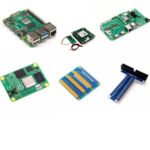



















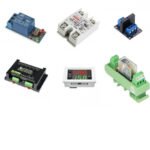
































































































































No account yet?
Create an Account
Reviews
Clear filtersThere are no reviews yet.